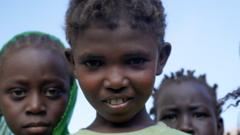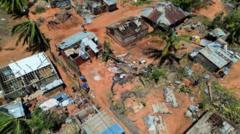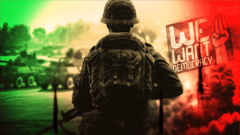Nearly five million Sudanese children, including orphans like 13-year-old Mahmoud, are facing dire circumstances due to the ongoing conflict, with the United Nations reporting severe famine and the need for humanitarian aid. As the world’s attention shifts to other global crises, local and international aid organizations strive to provide relief in a challenging environment.
The Struggles of Sudanese Children Amidst War and Famine

The Struggles of Sudanese Children Amidst War and Famine
The plight of displaced Sudanese children highlights one of the world's worst humanitarian crises, as they grapple with starvation, insecurity, and lost childhoods.
As the humanitarian crisis in Sudan deepens, children are bearing the brunt of the ongoing conflict. Among these children is Mahmoud, a 13-year-old Sudanese orphan whose resilience shines through despite the challenges he faces. Mahmoud has been displaced multiple times due to brutal fighting between the Sudanese army and paramilitary forces, which has resulted in one of the worst humanitarian situations globally, with millions of children like him suffering.
According to the United Nations, approximately 25 million people in Sudan, more than half the country's population, urgently require assistance. The situation has led to the declaration of famine in certain regions, affecting millions who live on the brink of starvation. Tom Fletcher, the UN's new humanitarian chief, spotlighted this crisis during his first field visit to Sudan, emphasizing that while another pressing global conflicts may dominate aid narratives, the plight of Sudanese people remains a critical issue.
Amidst escalated violence, many displaced individuals, including children, have found temporary refuge in makeshift shelters such as orphanages. Mahmoud currently resides in an orphanage in Kassala, where nearly 100 children live in dilapidated conditions. These children have witnessed heartbreaking losses as the conflict escalated in 2023, forcing them to flee multiple times.
While the humanitarian community struggles to respond to pressing needs, the logistical challenges continue to hinder effective aid delivery. A recent announcement from army chief Gen Abdel Fattah al-Burhan allowed the UN to establish more supply hubs, marking a potential step forward for aid access. However, the complex relationship between the UN and the ruling authorities in Sudan raises concerns among some aid workers who argue that the UN must not align too closely with a regime responsible for ongoing violence and instability.
In the battle against starvation, organizations like the World Food Programme (WFP) are improvising to reach the most vulnerable communities, providing vital food supplies. Yet, many aid workers fear that the ongoing conflict and the restrictive permissions from authorities may limit their effectiveness.
During Mr. Fletcher's visit, discussions centered on the alarming rise of sexual violence amid the war, with many calling it an "epidemic." Women and children, who are often the most affected, have expressed the need for the Sudanese people to rally together during these dire times. Local initiatives, like safe houses for abused women and orphaned children, provide a glimmer of hope amidst the chaos, illustrating the strength of community efforts despite overwhelming challenges.
As the humanitarian crisis continues unabated, the message remains clear: the world must not lose sight of Sudan amidst its myriad crises, as millions, especially its children, continue to suffer in silence.





















